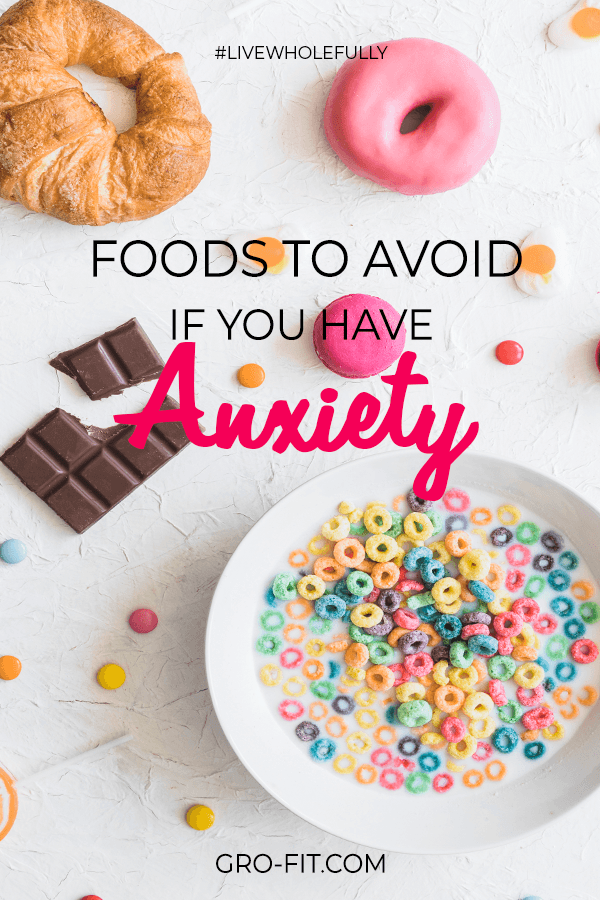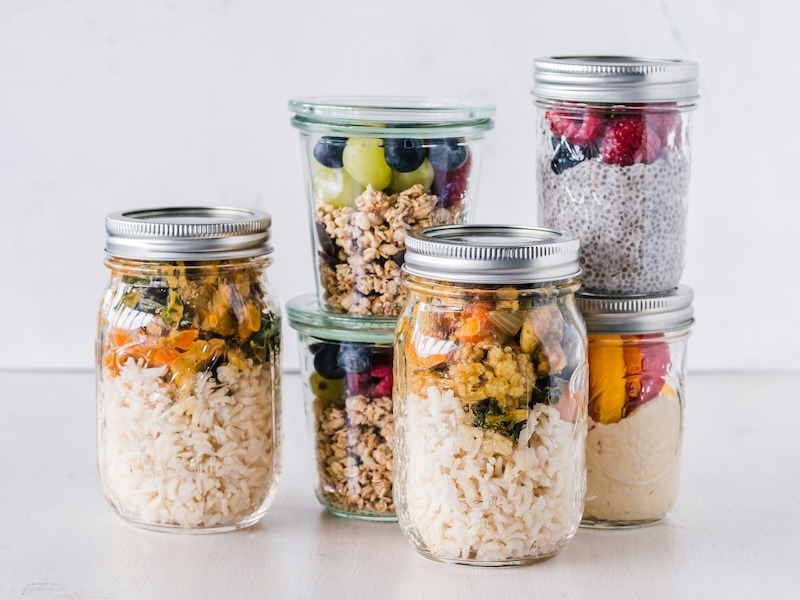If you told your friends that certain foods can cause or worsen anxiety, they might look at you like you have three heads.
But according to research, there are foods that can have such a strong impact on your mental health that they rival that of prescription medication.

But it makes sense! How many times have you seen on the news that a new study has come out showing the brain light up the same way when a person is given sugar versus when they are given cocaine?
Or what about all the recent research on the brain-gut connection and how our gut health directly influences the production of serotonin in the brain?
It might all sound like some hippie, new-age thinking but it is very much backed by science. Take a look at some of the biggest culprits below!
Caffeine
Trigger: Coffee, St. John’s Wort, ginseng, and certain headache medications
What a way to rain on someone’s parade, right? Coffee is the life-blood of over 60% of people, according to the National Coffee Association. But high levels of caffeine can not only increase anxiety and nervousness but can also decrease the production of serotonin, causing a depressed mood. However, caffeine is safe in low doses, just try to keep it under 300 milligrams a day.
Alternatives: Tea (Black, Green, White, Red, Matcha, Chai)
If cutting out caffeine is a “hard pass” for you try limiting your intake or cutting it in half. You can also substitute tea, which has less caffeine per cup than coffee. There are thousands of varieties and flavors of tea. Find a local tea shop and see for yourself!
Matcha and chai teas are a good substitute if you are craving a creamier texture. Just watch out for the added sugars that many chain shops add to their versions.
Alcohol
Trigger: Beer, wine, liquor
First caffeine, and now alcohol?! This one might seem a little confusing since many people experience calmed nerves and less stress when they are drinking, but alcohol is sneaky. The negative effects often occur long after you’ve had your drink(s).
Alcohol can have a negative impact on hydration and sleep, both of which can trigger anxiety symptoms. It can also alter serotonin levels, which makes anxiety worse. And when the alcohol wears off, you may feel even more anxious.
Alternatives: Non-alcoholic beer, mocktails
There isn’t really a “good” substitution for alcohol, but that doesn’t mean you can’t have a fancy beverage when you are out with friends. Mocktails and non-alcoholic beer are options if you want the taste of your favorite alcoholic beverage without the side-effects.
As with caffeine, if you absolutely can’t give up alcohol, try to cut back on how many drinks you have a week. You’ll also be saving money and calories with the cutback.
Added Sugar and Artificial Sweeteners
You could literally write a book on why sugar and artificial sweeteners are bad for just your mental health alone, not to mention your physical health. And many people have, just take a peek at the diet section in your favorite bookstore. Here’s a quick summary of why sugar can be enemy number one and how it can control your mood and mental health.
Sugar is absorbed quickly into the bloodstream, causing an initial high or surge of energy. Your body increases its insulin production to remove the sugar from your bloodstream, resulting in you feeling tired and low. To prevent your blood sugar from crashing the stress hormones cortisol and adrenaline rush in to “save the day”.
Elevated levels of these hormones are not good for your body and cause it to act as if it is stressed or in danger. Since most people eat sugar and refined carbohydrates like bread, cookies, or noodles during lunch and dinner as well, they are essentially stuck on this invisible hamster wheel 24 hours a day.
Artificial sweeteners go by many names and are found in a surprisingly large percentage of products including those marketed as low-sugar, diet, low-calorie, and “lite”. These fake sugars are especially harmful because they outright block the production of serotonin. The most common artificial sweeteners found in food are Aspartame (Nutrasweet, Equal), Saccharin (Sweet ‘N Low), and Sucralose (Splenda).
Alternatives: Natural substitutes for sugar
Fill up your plate with fruits and naturally sweet vegetables. Also try Stevia, erythritol, and Yacon syrup to curb your sweet tooth. Honey, coconut sugar, molasses, and maple syrup are ok to use in moderation as a sweetener but ultimately your body treats them the same as white sugar.
Aged, fermented, and cultured foods
Trigger: Aged steak, kombucha, kimchi
While aged, fermented, and cultured foods offer unique health benefits they can also cause or worsen anxiety in susceptible individuals. In order to create gourmet foods like aged steak, aged cheese, and wine, for example, bacteria is added to whole foods to break down the food proteins.
One byproduct that comes from this process is a biogenic amine known as histamine. This word might sound familiar because it’s also in the word antihistamine, which we recognize from allergy medication products.
Do you see where this is going? Histamine is a neurotransmitter that has the ability to increase levels of adrenaline, our “fight-or-flight” hormone and aggravates digestion, hormones, and the cardiovascular and nervous systems. In susceptible individuals, it can also trigger anxiety and insomnia. The bad news is that histamine is indestructible, so cooking and freezing don’t help. Once it’s present in your food, you’re stuck with it.
Alternatives: Fresh, whole foods
Fresh, whole foods contain minimal, if any, histamines since they aren’t subjected to bacteria intentionally. When shopping for meat or fish, look for the “packed on” date. The less time it takes for it to get from where it was packaged to your table, the better.
Over-processed Foods
Trigger: TV dinners, margarine, fried foods, sweetened desserts
Highly processed foods can be recognized as food not in its original form, like potato chips and crackers, or food that is not naturally occurring, such as sodas and donuts. These foods are a virtual goldmine of chemicals, salt, sugar, and bad fats and our bodies have a difficult time processing, digesting, and properly storing all these unnatural compounds.
Research has found that eating a diet of processed and fatty foods increases the risk for depression. Specifically, people who mainly ate fried food, processed meat, high-fat dairy products, and sweetened desserts had a 58 percent higher risk of depression than those who ate “whole” foods, such as fish and vegetables.
Alternatives: Minimally processed foods
It’s very difficult for the majority of people to completely avoid processed foods, in fact, some of them are pretty good for you. This is because processed foods fall on a spectrum from minimally to heavily processed.
Heavily processed foods include the ones mentioned above but minimally processed foods include items like bagged spinach, canned tomatoes, frozen fruit and vegetables, and canned tuna. Familiarize yourself with food labels and note that fewer ingredients usually means better for you. You can also do more cooking and food prep at home to maximize control over food processing.


